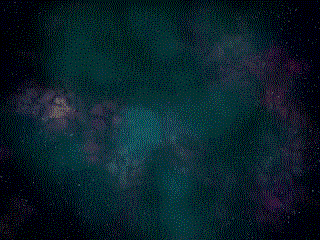Creation Evolves
Evolve
1. To develop gradually – Examples:
‘The company has evolved into a major chemical manufacturer.’ ‘The Gothic style evolved from the Romanesque.’ ‘Each school must evolve its own way of working.’
Synonyms: develop, progress, make progress, advance, move forward, make headway, mature, grow, open out, unfold, unroll, expand, enlarge, spread, extend
1.1 (with reference to an organism or biological feature) develop over successive generations as a result of natural selection. Also known as Darwinian Evolution. Example:
‘The domestic dog is thought to have evolved from the wolf.’
Origin: Early 17th century (in the general sense ‘make more complex, develop’): from Latin evolvere, from e- (variant of ex-) ‘out of’ + volvere ‘to roll’.
He creatively continued to form and shape the worlds and their contents in virtually endless and remarkably beautiful and orderly ways.
For the word of the LORD is upright, and all his work is done in faithfulness. He loves righteousness and justice; the earth is full of the steadfast love of the LORD. By the word of the LORD the heavens were made, and by the breath of his mouth all their host. He gathers the waters of the sea as a heap; he puts the deeps in storehouses. Let all the earth fear the LORD; let all the inhabitants of the world stand in awe of him! For he spoke, and it came to be; he commanded, and it stood firm. The LORD brings the counsel of the nations to nothing; he frustrates the plans of the peoples. The counsel of the LORD stands forever, the plans of his heart to all generations.
Note: Although it is clear that creation was characterized by exquisitely designed laws that shaped the formation of time, space, matter, energy, and the heavenly bodies as they evolved from the “Big Bang” onward, the role that Darwinian evolution has played is limited to various forms of life at best.

Forming a planetary system. Penetrating through a molecular cloud core where a new star is being born, we see the disk of material orbiting the protostar, the end point of the animation. It begins to glow bright red as energy is released by its contraction under gravity. Gas clouds come and go above the disk and then a wind starts from the star and clears excess gas from the disk, leaving the young planetary system.

Neo-Darwinian evolution
Evolution as the “Blind Watchmaker” Thesis: The “blind watchmaker” thesis, to appropriate Richard Dawkins’ clever term, stands for the Darwinian idea that all new living forms arose as the product of unguided, purposeless, material mechanisms, chiefly natural selection acting on random variation or mutation. Evolution in this sense implies that the Darwinian mechanism of natural selection acting on random variations (and other equally naturalistic processes) completely suffices to explain the origin of novel biological forms and the appearance of design in complex organisms.
Although Darwinists and neo-Darwinists admit that living organisms appear designed for a purpose, they insist that such “design“ is only apparent, not real, precisely because they also affirm the complete sufficiency of unintelligent natural mechanisms (that can mimic the activity of a designing intelligence) of morphogenesis. In Darwinism, the variation/selection mechanism functions as a kind of “designer substitute.”
As Dawkins summarizes the blind watchmaker thesis: “Natural selection, the blind, unconscious, automatic process which Darwin discovered and which we now know is the explanation for the existence and apparently purposeful form of all life, has no purpose in mind. It has no mind and no minds eye.”
Textbook Definitions of Evolution
Definition |
Endorsed by |
| 1. Evolution as change over time | Virtually all natural scientists |
| 2. Evolution as gene frequency change, AKA microevolution | Biologists and population geneticists |
| 3. Evolution as limited common descent | Uncontroversial among most scientists |
| 4. Evolution as a mechanism that produces limited change or descent with modification | Almost all agree for relatively minor changes while some question sufficiency for major changes |
| 5. Evolution as universal common descent, AKA Darwinism | Darwin’s “Origin of the Species” theory. Many agree with his full monophyletic theory while some favor a polyphyletic theory |
| 6. Evolution as the “blind watchmaker” thesis, AKA neo-Darwinism | Presumed and broadly accepted in contemporary parlance to be the conclusion of Darwin’s theory |
What Is Intelligent Design?
Intelligent design refers to a scientific research program as well as a community of scientists, philosophers and other scholars who seek evidence of design in nature. The theory of intelligent design holds that certain features of the universe and of living things are best explained by an intelligent cause, not an undirected process such as natural selection. Through the study and analysis of a system’s components, a design theorist is able to determine whether various natural structures are the product of chance, natural law, intelligent design, or some combination thereof. Such research is conducted by observing the types of information produced when intelligent agents act.
Is Intelligent Design Creationism?
No. The theory of intelligent design is simply an effort to empirically detect whether the “apparent design” in nature acknowledged by virtually all biologists is genuine design (the product of an intelligent cause) or is simply the product of an undirected process such as natural selection acting on random variations.
Is Intelligent Design a Scientific Theory?
Yes. The scientific method is commonly described as a four-step process involving observations, hypothesis, experiments, and conclusion. Intelligent design begins with the observation that intelligent agents produce complex and specified information (CSI). Design theorists hypothesize that if a natural object was designed, it will contain high levels of CSI. Scientists then perform experimental tests upon natural objects to determine if they contain complex and specified information.
Is intelligent design theory incompatible with evolution?
It depends on what one means by the word “evolution.” If one simply means “change over time,” or even that living things are related by common ancestry, then there is no inherent conflict between evolutionary theory and intelligent design theory. However, the dominant theory of evolution today is neo-Darwinism, which contends that evolution is driven by natural selection acting on random mutations, an unpredictable and purposeless process that “has no discernable direction or goal, including survival of a species.” (NABT Statement on Teaching Evolution). It is this specific claim made by neo-Darwinism that intelligent design theory directly challenges.
Light guides order

